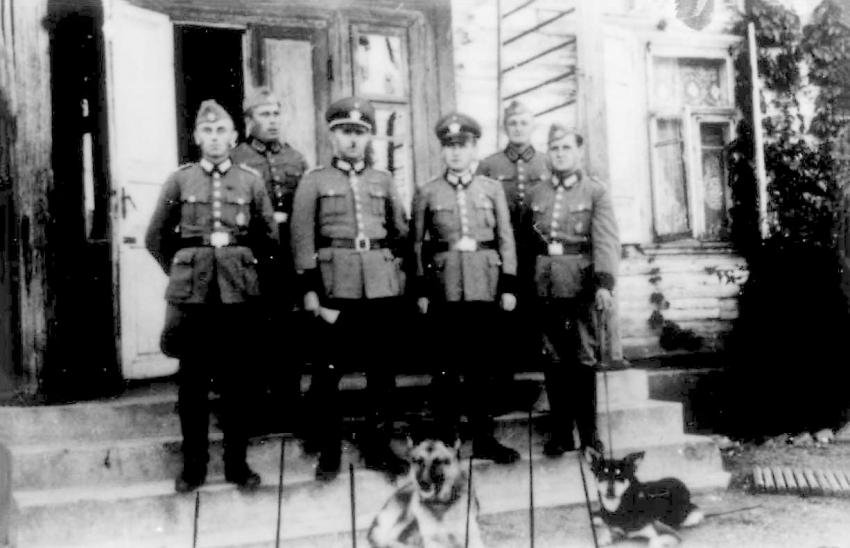On 22 June 1941, Nazi Germany invaded the Soviet Union. Within five days, German forces arrived at the outskirts of Mir and conquered the town following a battle during which three-quarters of the houses went up in flames.
"That day the Germans invaded our country. A huge air fight broke out above us. The Jews ran to the fields, while most of their homes went up in flames. All the synagogues and the yeshiva were also burnt to the ground… before we fled we managed to throw some of our clothes into the basement of my Uncle Fischel. The basement was made of concrete so it protected our clothes. My Uncle David's home remained in one piece and the entire Schreiber family and two other families moved in with them. It was terribly overcrowded. The children slept on the floor. We began to feel pangs of hunger."
Zeev Schreiber, Siporo Shel Mi Shesarad Vegam Nakam, p. 8
A fortnight after the occupation, the Jews of Mir were ordered to present themselves in the main square, where their valuables were confiscated. On 21 July, the Germans arrested 24 of the town's most respected residents, among them 18 Jews, accused them of communist activity, and murdered them next to a large pit outside the town, which the Jews were forced to dig with their own hands. Days after the murder of the 18 Jews a second Judenrat was established, the Jews were ordered to wear a yellow patch with the word "Jude" written on it, and males between the ages of 16 and 60 were recruited for forced labor.
"The local police abused the Jews. They were forbidden to walk on the sidewalk, trade with the Christians or shop in the market. The Jews didn't starve; a secret trade of clothes for food was set up between them and the villagers."
Testimony of Avraham Wajnger, Yad Vashem Archives, M49E/2209
